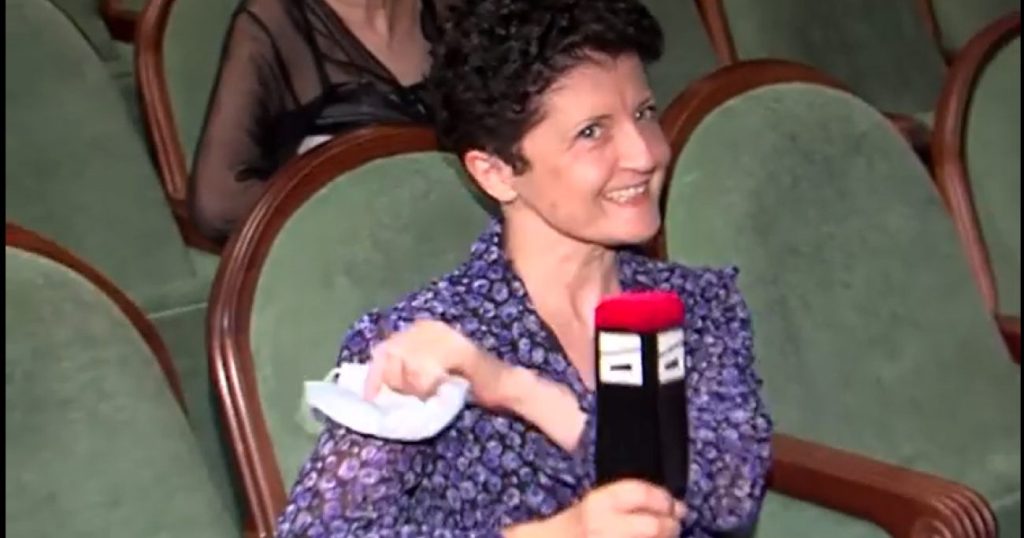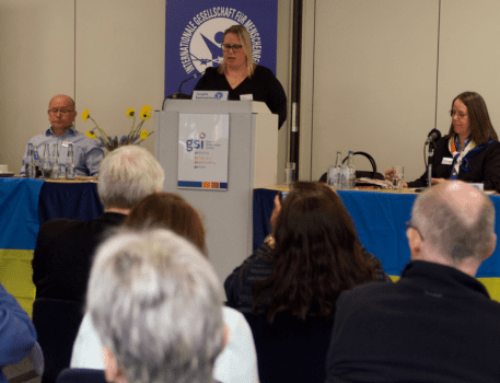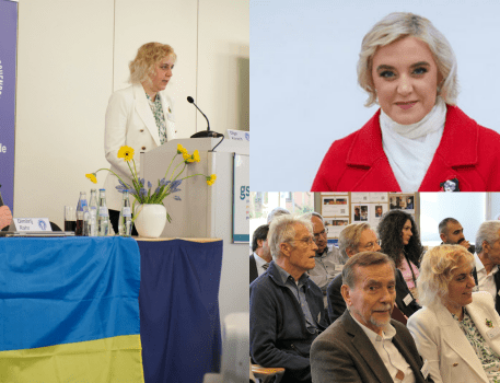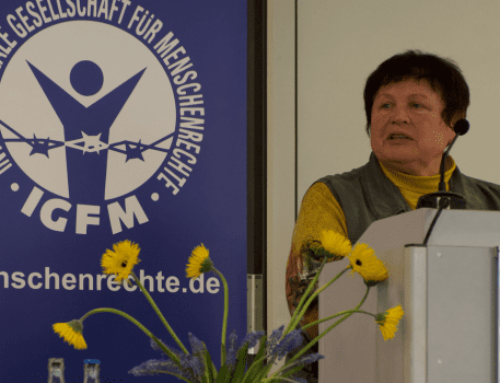Human Rights Watch 2021 report: a setback for Georgia
 The International Human Rights Organization, Human Rights Watch, has published a 2021 report, according to which, amid the political crisis, Georgia experienced a setback in a number of areas of human rights.
The International Human Rights Organization, Human Rights Watch, has published a 2021 report, according to which, amid the political crisis, Georgia experienced a setback in a number of areas of human rights.
According to the report, improper provision of justice for the crimes committed by the law enforcement agents remained an unresolved problem in Georgia. Other issues of concern include police brutal interference with freedom of assembly, attacks on journalists and the growing threat to media pluralism, institutionalisation of children in orphanages, violence against the LGBT+ community and unsafe working conditions.
The report also notes that Georgia failed to meet the conditions for justice reform in order to receive € 75 million in aid from the European Union.
Elections
The report notes the political crisis which followed the 2020 parliamentary elections and the boycott of parliamentary seats by the opposition parties.
International Organization for Security and Cooperation in Europe (OSCE) observers assessed the election as competitive and “technically well-administered”, but noted the “allegations of voter pressure, voter bribery and unequal conditions damaged the process”.
“After the second round of elections in late October, observers noted a sharp imbalance of resources and the disproportionate advantage of being in power further added to the competitive advantage of the ruling party and created unequal electoral conditions”, the report said.
Human Rights Watch reports that on the eve of the election, October 1, police arrested former Georgian President Mikheil Saakashvili, who had returned to the country after eight years in exile.
Improper investigation of crimes committed by law enforcement
Human Rights Watch notes that the impunity of law enforcement officers for the crimes they have committed has remained an unresolved issue in Georgia. According to the report, the police have restricted the right to freedom of assembly by not allowing the demonstrators to set up tents in front of the parliament building. On top of that, on February 23, 2021, the police raided the office of the United National Movement and arrested the party leader, Nika Melia.
According to the Georgian Young Lawyers’ Association (GYLA), the police used a disproportionate amount of force in the form of tear gas and could not explain the grounds for removing the computer equipment from the UNM headquarters. “Melia was accused of inciting violence during a protest in Tbilisi in 2019, and he refused to pay the increased amount of bail, he was also charged for removing his electronic surveillance bracelet at a November 2020 rally”, the report said.
The report also talks about the amendments made by Parliament to the Code of Administrative Offenses. As the organization notes, after the changes, the fines doubled and tripled (to about $ 1,300), the administrative detention period was extended from 7 to 15 days, and judges were deprived of the right to apply a relatively light punishment for repeated offences.
Human Rights Watch also cites leaked materials from the State Security Service that contain information about clerics and individuals related to the Georgian Patriarchate:
“The information was allegedly obtained through illegal surveillance. The materials also included personal conversations of journalists, opposition politicians, public officials and foreign diplomats. The prosecutor’s office has launched an investigation into the leaked materials”.
Freedom of media
The HRW report stated that in 2021, journalists and other members of the media were subjected to numerous intimidations and attacks. In February, police arrested three people who attacked journalist Vakho Sanay, host at the private Formula TV Channel:
“According to Sanay, the attackers recognized him and assaulted him. In August, the court found the attackers guilty and punished them by a term equal to their pre-trial detention”.
The report also examines the events of July 5, 2021 and highlights that at least 53 media workers, including journalists and cameramen, were verbally and physically attacked by violent groups opposing the LGBT Pride march. The attackers also reportedly smashed and destroyed equipment of media representatives. Several journalists were injured and had to be hospitalised.
A few days later, the cameraman of the Pirveli TV company, Alexander Lashkarava, was found dead in his apartment. He received facial fractures, concussions and bruises as a result of the beatings and underwent surgery. The day after his death, before the cause of death could be fully established, the authorities, on the basis of an “interim expert report”, named a drug overdose as the probable cause of death. “At the time of writing, the final expert opinion has not been published”, the report says.
HRW also reports that on July 22, Culture Minister Tea Tsulukiani, in response to uncomfortable questions, grabbed the microphone from a correspondent for the main opposition TV channel and never returned it.

Sexual orientation and gender identity
The report says that Tbilisi Pride organizers canceled the March of Dignity, scheduled for July 5, after far-right groups forcibly invaded their offices and attacked journalists.
“Instead of protecting the safety and freedom of assembly, the authorities blamed the organizers and participants of the Pride. Prime Minister Irakli Garibashvili declared it “inappropriate” to hold a demonstration in a public place that could provoke “civil confrontation”. The Interior Ministry also warned the organizers that such a procession should not be held in a public place. According to numerous media reports, there were small groups of police on the spot, but they could not effectively prevent the incidents of violence”, the statement said.
According to the organization, for legal recognition of gender in Georgia, transgender people are required to submit a document confirming gender reassignment surgery, and this requirement creates serious barriers for transgender people in their daily life, leads to their marginalization and increases the risk of unemployment and poverty.
Children’s rights
The report examines the situation around the boarding school for orphans in Ninotsminda. The organization notes that the Georgian Ombudsman was twice refused permission to conduct monitoring there. In this regard, the UN Committee on the Rights of the Child adopted an emergency interim measure, urging the authorities to ensure immediate control over the situation around Ninotsminda boarding school.
The organization draws attention to the plight of children in the context of the pandemic and cites a UNICEF report that about 50,000 children in Georgia were left without access to education after switching to distance learning:
“Many students face difficulties in distance learning, especially in poor mountainous areas, due to poor internet coverage, lack of appropriate electronic devices in poor families and teachers’ inexperience in online learning”.
Labor rights
HRW notes that the cardinal changes in labor legislation came into force on January 1, 2021. However, despite the reforms, ensuring adequate working conditions remains a challenge. According to the organization, social protection is minimal, and trade unions lack the legal mechanisms that would enable them to effectively negotiate systemic change. Furthermore, the effectiveness of the “labor inspectorate” is constrained by a lack of resources:
“Workplace safety also remains a challenge. According to the Labor Inspectorate, from January to September, 20 people died and 189 were injured in the workplace”.
International actors
The report says that the European Union, the United States and other Western partners have been helping Georgia overcome the political crisis for a year.
“In March, the Georgia-EU Association Council assessed the implementation of the Association Agreement. The European Union (EU) called on Georgia to strengthen compliance with anti-discrimination legislation, protect minorities and ensure gender equality. It also called on Georgia to continue creating an effective labor inspectorate “to further improve working conditions”. In July, as part of the EU-Georgia Human Rights Dialogue, the EU and Georgia condemned the violent attacks that led to the cancellation of the March of Dignity, and Georgia has pledged to investigate such attacks”, the report says.
Source: jam-news.net








Leave A Comment